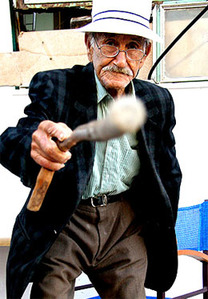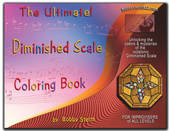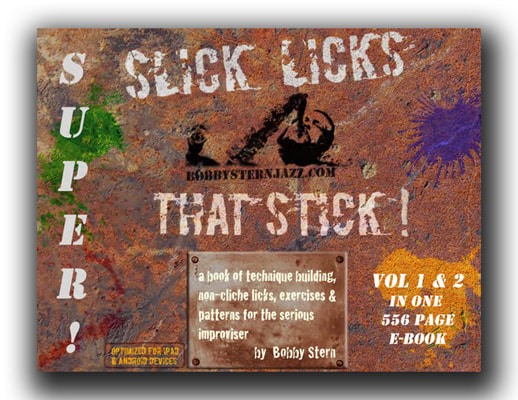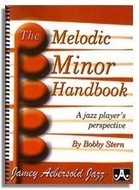SYNTHETIC REEDS: Cane Mutiny?

Due to advances in technology, better marketing, the current tight economy, dissatisfaction with the inconsistencies of cane and the availability of a real and viable option; the result seems to be that more woodwind players than ever before are switching to synthetic reeds and regretting it less.
The cane vs. synth debate is presented pretty much on point elsewhere, so no need to go down Redundancy Rd. here.
Reeds, like mouthpieces, combs and toothbrushes are, of course, very personal items. As a former cane and long time synthetic reed user myself, I can only attempt to enlighten from my own experience with both.
This last point should not be underestimated, as I have read in several online forums about failed attempts at using synthetic reeds being attributed to the reed itself. Reed strength, mouthpiece and, above all, the facial & throat muscles that adjust to the reed and mouthpiece resistance, thus forming an embouchure, all have to work in sync. Any change in the mouthpiece or reed usually requires some type of adjustment to the embouchure, and an adjustment usually requires time and patience. It's kind of similar to lifting weights, where the muscles adapt to the resistance involved. In both cases, however; you still have to do the work.
So like I said, give it a minute.
To that end, investing in a Cordier Reed Clipper as an indispensable tool might be a wise decision, even for cane users. They're made in France, they're very well constructed and durable, and they'll give you many years of reed clipping pleasure. I can't even remember how long I've had my present ones; probably since the early '80's.
I'm convinced that once you do get comfortable with a synthetic reed, you probably won't want to use cane again; especially when you consider the savings involved, both in time & money.
A synthetic reed won't last forever, however. Even though they don't warp or get water logged, they still do vibrate many millions of times over the course of their useful lifetime, which means that sooner or later they'll get dull or even split. I've had synthetic reeds develop small horizontal stress fractures close to the tip, and then I'll know it's time for a change. But we're talking 2-3 months of regular, hard blowing usage. I've blown out chunks of reeds on rock 'n' roll gigs trying to play double altissimo, fortissimo B flats and above, with my teeth on the reed. Oh, Lenny Picket, where can you be?!
I just normally leave the reed on the mouthpiece, and rinse it off in warm water before playing or practicing. No fuss no muss! That's the way it's been for the past 25 years.
I've been playing Bari synthetic reeds exclusively since they were recommended to me in 1987 by David Liebman, with whom I was fortunate enough to be able to study briefly after getting an NEA grant. At the time I was more than open to any option that would allow me to not have to spend hours going through a box of cane reeds, trying to find a reliable, playable one every few days. Lieb told me that it might take some time to get used to them, and it took about a week. The result, however, more than 25 years later, is that I still love my Bari's and I've been a proud Bari Woodwinds endorser since 2006.
So now that the happy truth is out, I'll also have to admit that Bari is the only brand of synthetic reed that I've ever even tried. B. don't know Legere, Fibracell, Forestone, etc. I just know what works for me, and worked well it has (check recordings)!
Anyway, to celebrate the occasion, I wrote a short verse on the subject. Like to hear it? Here it go:
So cane was good enough for Bird & 'Trane,
But who's to be sayin',
That if they were here today,
It wouldn't be synthetics they'd be playin'?
For those of you who prefer the sound of "good ol' cane": I wasn't aware that cane had a sound. For that matter, I didn't know plastic had a sound either. You, the reed & mouthpiece make the sound. Ultimately, the sound is YOU!!
---------------------------------------------------------------------------------------------------------------------------------------
REED DADDY
 Wolfe Taninbaum
Wolfe Taninbaum I'm fortunate enough to have gotten to know Mr. T a little bit, as I started ordering reeds directly from him over the phone in the early '90s when I lived in Germany. I would call the Florida number listed in the narrow plastic single reed container and always got him on the phone. He'd give me a nice discount as I would usually order 15 or 20 reeds at a time.
When I finally got to actually meet him and his late wife Sylvia in person a few years later at the Frankfurter Musikmesse (Europe's version of the NAMM Show), I was so excited that I began shouting at everyone who passed by the Bari booth that "this is the greatest thing since sliced bread" for lack of a better cliche. I thought Sylvia might have had this look like, "who is this nut job?" and that she might seriously be thinking about making a call to security, so I curbed my enthusiasm a bit, took a chill pill, etc. and generally mellowed out! Hey, I had already been playing these reeds for almost 10 years and was beside myself actually meeting my "reed daddy" for the first time!
Jump ahead a few years and I find myself living near Ft. Lauderdale, FL; location of Bari Associates world headquarters at the time. So naturally, I pay them several visits which means I got to see the small company workshop first hand. Wolfe, who was 85 at the time, was in full command of the ca. 15-20 or so employees engaged in various activities, on machines, working on and packing mouthpieces and manufacturing reeds.
I could best describe Wolfe Taninbaum as being an intense, rugged, innovative New Yorker from the old school, typifying many characteristics of his generation. As he reminded me of certain individuals in my own family, he seemed, well, familiar.
One thing I'll always remember is when I told him that I still needed to clip a bit off the Tenor Hard strength reeds I use out of the box because they weren't hard enough for my setup (At that time I'd been playing an original Guardala King Curtis model mouthpiece since 1987, the same time I started using Bari Reeds). Since they didn't come any harder than Hard, he took the reed that was on my mouthpiece and cloned about a dozen for me. Now how cool was that!?`
Wolfe sold the company a few years later in 2005, to the Cavanaugh Group based in Sarasota. It was then sold to partners Ron Van Ostenbridge and Gary Spears in February, 2016. They moved headquarters up the road a piece to Palmetto, FL. and diligently maintain Bari Woodwinds standard of quality and innovation, set forth by "The Founder" himself.
Wolfe Taninbaum passed away on May 7, 2013, ten days before his 96th birthday. R.I.P Reed Daddy - you are missed!
B.Stern
 RSS Feed
RSS Feed









